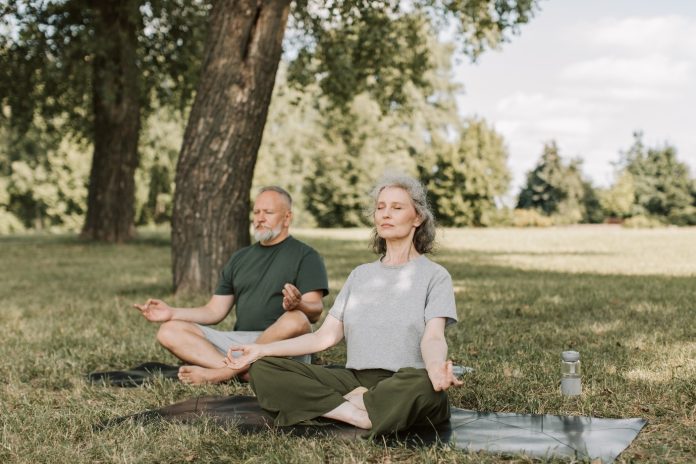Aging is a slow, continuous natural process of change. Although experts say aging starts from around 25 years of age, it is not age specific. For some people, the first signs of aging may become apparent from around the age of 34, while others may see signs in their 50s.
Aging affects almost all realms of your life, including your physical, emotional, and mental health, social life, sexual life, and more. Many bodily functions start to decline gradually. For example, in women, menopause is a part of aging. It occurs at the age of 51 (average) and is when changes occur in their bodies. In males, losing weight becomes more challenging when they reach 50.
While genes that may speed up the aging process are not in your control, healthy habits are within reach when it comes to getting older gracefully. Taking little steps toward a healthy lifestyle can help maintain your overall well-being, live independently, and improve your quality of life as you age, especially after reaching 50.
Adopt the following eight healthy habits to keep your body and health in good shape after you hit 50.
-
Get Important Preventative Health Screenings
You are more susceptible to various health conditions as you age, and regular medical examinations can identify any underlying health problems early. You may not experience any disease symptoms, but it is essential to get your health checked as a preventative measure.
Know which preventative screenings to add to your routine medical examinations, including rare cancer screenings and vaccines. Many healthcare providers are unlikely to suspect rare diseases like mesothelioma, which often leads to a mesothelioma misdiagnosis. Visiting a specialist in such a case is vital for a thorough check-up and accurate disease diagnosis.
-
Incorporate Physical Activity into Routine
Exercise and physical activity can help improve your health span and impede the degenerative(aging) process. Numerous research shows the health benefits linked to physical activity, and it becomes more crucial when you age.
Regular exercise helps older people mitigate the risk of developing chronic diseases, such as diabetes and heart disease, improve their psychological health, lower the risk of dementia, and boost overall immune function.
Whether you take a walk in the park, ride a bicycle, run to the grocery store, or join a gym, ensure incorporating physical activity into your routine.
-
Give Up on Smoking
About one in ten individuals over 65 years of age smoke tobacco. Smoking is one of the leading causes of death and many health problems, including lung diseases, stroke, and heart disease. It can also worsen health issues in the elderly, including osteoporosis, diabetes, blindness, mental health problems, and memory loss.
If you are a smoker, you must quit immediately. Research suggests that even if you are over 60 and have been smoking tobacco for years, giving it up will improve your well-being, including lowering the risk of heart attack, cancer, and lung disease.
-
Make Healthy Food Choices
Following a healthy, balanced diet can help prevent many diseases as you age and promote brain function. Choosing healthy foods helps you stay energized, maintain weight, and get the essential nutrients your body needs. Research emphasizes a low glycaemic diet to improve the way your body ages, which includes
- protein-rich foods such as lean fish and meat
- vegetables, such as green peas, broccoli, and leafy greens
- fruits (low sugar), including oranges, apples, and blueberries
- natural yogurt and milk
Besides, foods rich in vitamin A and omega-3 fatty acids, such as tomatoes, pumpkin, cantaloup, flaxseed, salmon, and walnuts, help your skin look brighter and younger.
-
Get Adequate Sleep
Lack of sleep affects your physical health and weakens your memory and decision-making skills. Over time, it can lead to cognitive decline, increasing the risk of dementia in older adults.
Did you know chronic insomnia may lead to a greater risk of obesity and diabetes? We can say lack of sleep boosts the aging process.
For individuals over 65 years of age, getting 7 to 8 hours of sleep every night is highly recommended. As you grow old, you may feel sleepier a bit early at night and wake up earlier each morning; this is normal, as long as you meet the recommended hours of sleep each night.
If you experience insomnia, try limiting the screen use before bedtime and dimming the lights. However, if the problems persist, don’t forget to communicate with your doctor.
-
Limit Alcohol Consumption
Alcohol may affect the functions of some vital body organs, including the liver and brain, and cause premature aging. Recent investigations show that the risk of death linked to consuming alcohol is maximized at levels above one drink each day on average for both males and females.
Since alcohol is a diuretic, it promotes the removal of water from your body through urine, leading to dehydration. Alcohol can sap your skin of elasticity and moisture, causing dryness, wrinkles, and sagginess. You can say alcohol makes you look old! Even a single night of heavy drinking can make your wrinkles and fine lines look prominent.
-
Wear Sunscreen
Excessive exposure to sun rays can cause premature aging (wrinkles, age spots, sagging), sunburn, and skin cancer. Wearing quality sunscreen can protect your skin’s health and appearance, especially when you grow old. Choose a sunscreen with an SPF of 30 at least for regular use. If you are an outdoor worker or exposed to excessive sunlight, it is better to pick a product with 60 or greater SPF.
-
Practice Meditation
Want to know one of the best yet easy anti-aging techniques? It is meditation. The good thing is it will just take 10 to 15 minutes of your time each day!
Other meditation techniques, such as mindfulness, can also help. Mindfulness refers to your ability to be fully present at the moment, aware of what you are doing and where you are. Since mindfulness helps relieve stress and improve your mood, it could benefit you as you get older.
Conclusion
Your body naturally changes when you age. Aging may affect the entire body, from internal body parts to skin and hair to your mental health. While certain things may not be under your control, doing what’s possible can bring the best. Adopting healthy lifestyle habits, such as getting monthly or yearly medical check-ups, a healthy and nutritious diet, enough sleep, regular exercise, limiting smoking and alcohol, and protecting your skin can help you age smoothly, gracefully, and independently.



















